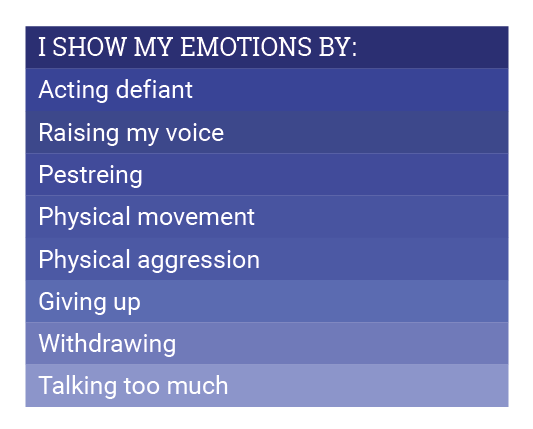Foetal Alcohol Spectrum Disorder or FASD – An uncomfortable discussion topic, cloaked with stigma and judgement. But how much do you really know about it? Or the significance of alcohol in pregnancy for that matter… At Project 6 we strive for a broad-spectrum approach to any issue; aiming to educate, support and plan for positive outcomes – whatever the circumstance. We do this consistent with our organisational values; in a friendly and non-judgemental way. Over the next few posts, we’ll share some factual information to raise awareness of the condition, and demonstrate how Project 6 can help you and your family.

10/03/20
Foetal Alcohol Syndrome is a condition where a baby is born with mental and/or physical problems, associated with the use of alcohol in pregnancy. Alcohol present in the Mother’s bloodstream passes through the placenta to the unborn child – whose tolerance is minimal compared to an adult’s. This can disrupt development of cells, causing damage to the brain, spinal chord or other areas of the body… The higher the consumption of alcohol, the greater the risk – in fact, it’s widely acknowledged that there is no ‘safe’ limit to drink during pregnancy. Having said that, stopping at any stage helps to reduce the risk of baby developing these problems.
If you’re currently pregnant (or even trying to conceive), struggling with your use of alcohol and want support to manage this, Project 6 forms part of the Multi-agency Antenatal Service, operating in Keighley, that offers specialist advice alongside Midwifery care.
For further information on this service, call us on 01535 610180, or for more detailed information on Foetal Alcohol Syndrome access NHS guidance via the following link:
https://www.nhs.uk/conditions/foetal-alcohol-syndrome/
12/03/20
Indications that a child may have Foetal Alcohol Syndrome… How can we tell? What are the signs? The accompanying image shows the indicative physical features associated with the condition that may alert you to the possibility that a child has FAS. But there are further factors that medical professionals look for, to support a diagnosis: difficulties with balance and movement, issues with attention, concentration or hyperactivity, poor growth, learning difficulties affecting speech, memory and socialisation are but a few. Have questions?? – Contact us on 01535 610180 for an informal chat, or speak to your GP, Health Visitor or Midwife for structured advice.

If you’ve managed to read our previous posts on Foetal Alcohol Spectrum Disorders, perhaps now you have an understanding of how it’s recognised… but what benefit does this knowledge bring? How can it help?
Being aware that your child is affected can influence the way in which you parent… Understanding that they need compassion and a consistently patient approach, helps them (and you!!) to cope. You can adopt strategies or use activities that bring calm and focus, such as yoga (Bev, our amazing Family Support Worker has delivered this in sessions with our young people before, to great benefit ?,) limiting, managing or preparing your child for over-stimulating activities or changes in routine, telling stories to prepare your child for new situations, or using fidget toys are all worthwhile tasks. But there’s so much more… further suggestions, extensive resources and both local and generalised support are available via www.fasdnetwork.org, or to find out how Project 6 can support your family, contact our main reception on 01535 610180.


09/09/20 – FASD Awareness Day
This useful pocket guide from The PHA can help answer question you or other may have about alcohol and pregancy.
Catherine’s Story
Hi! I’m a foster carer for a young person with foetal alcohol spectrum disorder or FASD for short. I want to help spread the word about the dangers of drinking when pregnant, but also to encourage parents / carers to seek support if they feel their child may be affected by FASD.
FASD occurs when a woman drinks alcohol when she is pregnant. There is no safe limit of alcohol to drink when you are pregnant. Drinking in pregnancy does not affect all babies, but the more you drink the greater the risk. Women who consider themselves social drinkers can have a child affected by FASD.
Alcohol passes across the placenta, it can damage the developing brain and can result in difficulties with learning, concentration, memory, behaviour, emotional regulation, as well as birth defects that can affect other parts of the body. It is a spectrum, some children are more affected than others. Imagine ADHD, autism and a learning disability all rolled into one and that is often FASD.
Our young man is a joy to have in our family, he has many struggles and difficulties, but also many talents. He loves acting and music, has a great sense of humour, has boundless energy and will have a go at anything.He struggles with learning, school and friendships. He has problems with short term memory and needs reminders at school and at home to do things that other children take for granted. Learning new skills is difficult, despite repeating something many times it just doesn’t seem to stick.
He struggles to make and keep friendships, despite being very friendly and wanting friends. He struggles with his own emotions, quickly becoming angry and upset if things go wrong. He also gets over excited quickly, its like he often only experiences extreme emotions. He’s either really happy, really sad, really angry, or really excitable, there is very little middle ground.
The good news is he was diagnosed with FASD, and I made it my mission to learn all I could about the condition. I contacted FASD Network UK who were really supportive and provided information about the condition. All of a sudden his difficulties and behaviours made sense. I got advice about specific parenting strategies that help him, and how to avoid the emotional meltdowns we had experienced in the past. Parenting him has been difficult, and challenging, but also very rewarding. With the correct support he can do anything, and that’s my plan for the future, to ensure he has the right support to be successful at whatever he wants to do.
from FASD Network UK
If you have been affected by issues in the article or want to find out more please contact:If you have been affected by issues in the article or want to find out more please contact fasdnetwork@mail.com
